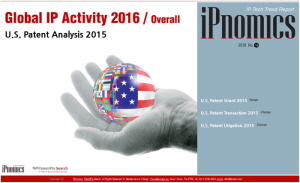Share the post "Hyundai Motor Company to Develop Its Own Automotive Semiconductors"
Hyundai Motor Company is working on developing its own automotive semiconductors and this will be its secret and long-term project that looks ahead 10 years from now on. It seems that it has made such decision as percentage of electronic devices for cars has risen. It believes that it will be impossible to create innovations that surpass its competitors if it cannot differentiate itself in semiconductors that are major parts in electronic devices.
According to industries on the 26th, Hyundai-Autron, which is a subsidiary of Hyundai Motor Company, recently made supply contracts with Infiniteon and Elmos Semiconductor from Germany and ST Micro that is a French-Italian semiconductor manufacturer for ASIC (Application Specific Integrated Circuit).
When Hyundai-Autron provides them with detailed specifications and functions of semiconductors after discussing with Hyundai Motor Company, then they will be responsible for design and production of these semiconductors. Finished semiconductors will then be stamped with ‘Hyundai AUTRON’ mark. Although design and production will be done by foreign companies, Hyundai Motor Company will have the right to use these semiconductors. It is also heard that major IP (Intellectual Property) ownership will be divided between Hyundai. In order to work on this project, Hyundai-Autron had carried out biddings for foreign semiconductor manufacturers since last year. It recently finished working on contracts with manufacturers that won the biddings and has started working on design of semiconductors.
Infineon, ST Micro, and Elmos Semiconductor will be responsible for designing and producing semiconductors for power system, main body, and electrical system respectively. Main goal is to combine discrete chips, which are termed as an individual component, through IC. By doing so, Hyundai-Autron is planning to decrease number of components and lower production cost. These chips then are likely to be commercialized in 2019 and will be used for new cars that are going to be introduced by Hyundai Motor Company in 2020.
Picture of Hyundai Motor Company’s Grandeur IG. Although current semiconductors that are used for Hyundai Motor Company’s cars are supplied from foreign companies, it is predicted that semiconductors that are clearly stamped with Hyundai-Autron’s mark will be used for Hyundai Motor Company’s cars around 2020.
Hyundai Motor Company officially established Hyundai-Autron in April of 2012 with a goal of designing and producing its own automotive semiconductors. However after realizing that it is not easy to develop its own semiconductors, it has usually carried out proxy businesses in purchasing semiconductor within a group. “Hyundai Motor Company has found a new way out through ASIC business after establishing Hyundai-Autron 5 years ago.” said a representative for an industry. “It is as Hyundai Motor Company is pushing to develop its own semiconductors again.”
Industries predict that Hyundai-Autron will design its own semiconductors after this ASIC project is settled and this scenario is definitely possible after it gains experiences and IPs by working with leading companies. Apple also received application processors from Samsung Electronics through ASIC foundry when it started releasing its early iPhones. It then purchased P.A. Semiconductor, which is a fables semiconductor company, and established a system to design its own semiconductors. Tesla also signed off on a supply contract with Samsung Electronics last year regarding ASIC business and has decided to receive chips for self-driving technology.
Many personnel from Hyundai-Autron used to work for Samsung Electronics Semiconductor Business Department. President Kim Jae-beom, who is the CEO of Hyundai-Autron, used to work as an executive director for Samsung Electronics Semiconductor Business Department and was in charge of overseeing tasks on planning. He was wired as a vice-president in March of 2014 and became the CEO of Hyundai-Autron along with being promoted as the president at the end of 2014. Personnel who are currently pushing for ASIC businesses also used to work as executives for Samsung Electronics Semiconductor Business Department.
Staff Reporter Han, Juyeop | [email protected]
Share the post "Hyundai Motor Company to Develop Its Own Automotive Semiconductors"

